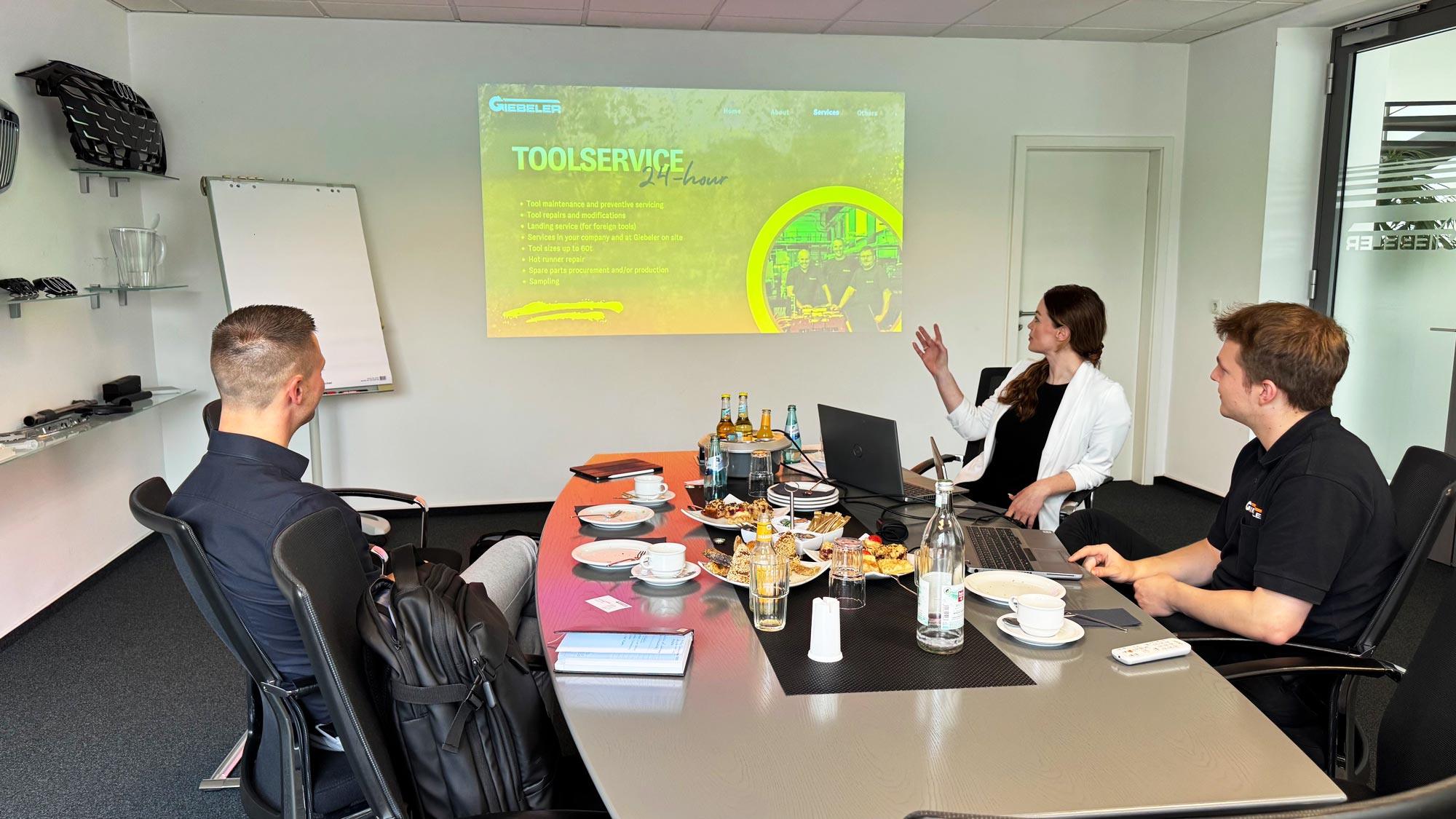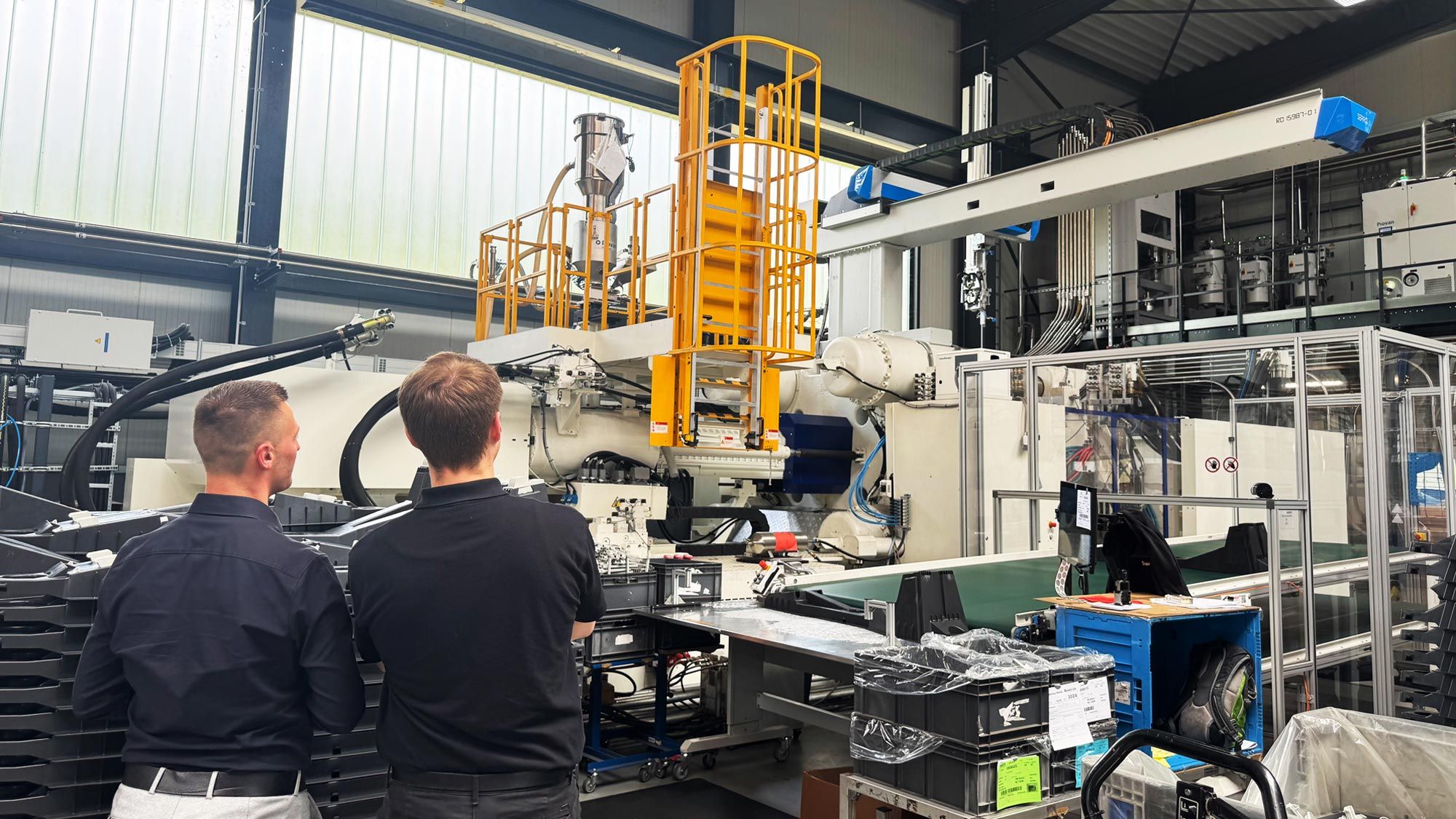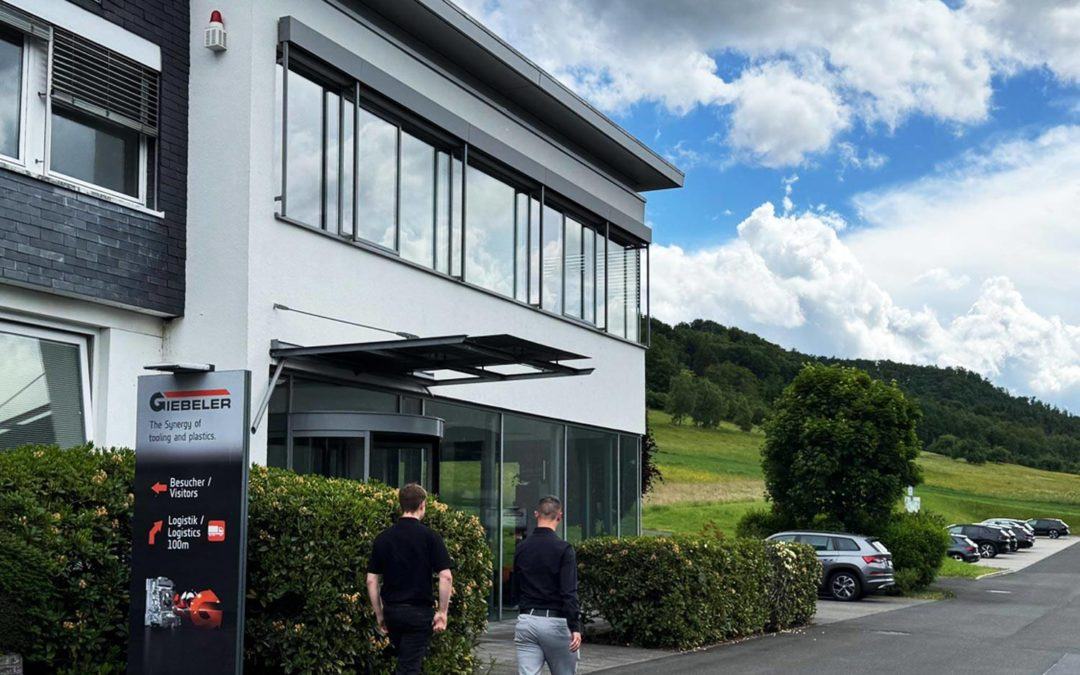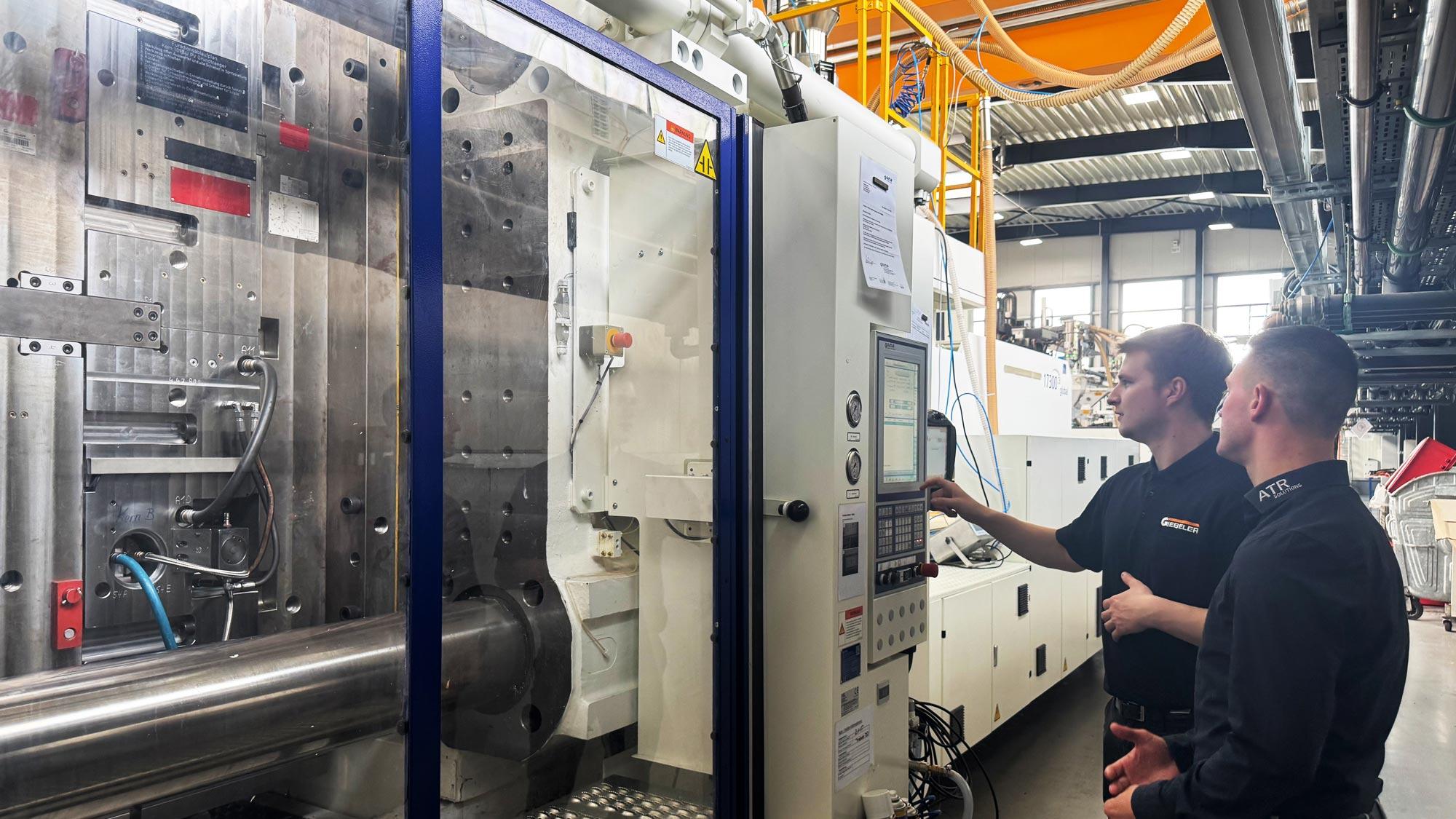From toolmaking to series production, Giebeler is known for its comprehensive, customer-oriented approach to plastics processing. Haitian is a partner that shares this philosophy, offering uncompromising service and machine concepts designed for competitive part costs.
Giebeler has an eventful company history. Initially active in slate mining when it was founded in 1956, the family-owned company now operates in three business areas: precision toolmaking, tool service and series production in injection molding. Having these three areas under one roof offers customers significant advantages. Tools are designed and sampled under real production conditions before being transferred directly to production. The same team that designs the tools also oversees the optimization and validation processes, resulting in short feedback loops and reliable results.

Mrs. Jacqueline Kowalewski introduces us to the unique 24-hour tool service, which is truly a USP ingrained in Giebelers DNA.
From left: Matthias Poggel (Sales Manager ATR solutions), Jacqueline Kowalewski (Management Assistant at Giebeler) and Tom Niklas Calvo-Lorenzo (IT Specialist for Data and Process Analysis at Giebeler)
For decades, the automotive industry provided the company with a stable foundation. However, the sector’s increasing fragility and unpredictability made a realignment necessary. Today, the automotive sector still accounts for around 50 percent of sales, but this percentage is deliberately declining. In recent years, Giebeler has repositioned itself through targeted diversification, in-house developments, and collaboration with partners in China, some of whom are former employees. The company has a strong family culture with flat hierarchies and personal responsibility. This flexible, independent, and globally minded attitude reflects a remarkable affinity with Haitian.
Giebeler’s production relies on a diverse machine park of 33 injection molding machines with clamping forces ranging from 350 to 16.000 kN. Energy efficiency, process reliability, system flexibility, and operating costs are increasingly important factors in investment decisions. However, the origin of the trusting partnership was another aspect: the service culture of both companies. “We rarely experience service technicians who stay until the problem is truly resolved without hidden additional costs. Haitian and its sales- and service partner ATR have done exactly that.”
Whether connecting to a new MES system or stabilizing a challenging material, the Haitian team quickly arrived on site, stayed until the process was stable, and did not leave production until it was secure. Giebeler himself offers a mobile tool service that provides on-site support to customers. The team is almost like an emergency service, immediately ready to respond when a tool needs maintenance, repair, or quick intervention.
This helps keep production lines stable, even in critical situations. This customer-oriented approach formed the natural bridge to Haitian International. So it’s no coincidence that the Haitian service DNA, embodied by around 40 technicians in Germany and over 200 throughout Europe, resonated.

Matthias Poggel and Tom Niklas Calvo-Lorenzo in front of the HAITIAN JUPITER Series.
At Haitian, too, global economies of scale and stable supply chains ensure cost efficiency, while European application expertise and local service guarantee customer proximity. Both companies are thus focusing on a balance between global strength and local proximity – for short delivery times, reliable quality, and an optimal cost-benefit ratio.
At Giebeler, production data has long been the basis for decisions – from run-at-rate validations to OEE dashboards. Together with Haitian, the machines were the first in the entire machine park to be integrated via EUROMAP interfaces. Giebeler is thus replacing old host interfaces with modern, standardized communication and creating real-time transparency in production. For employees, this means fewer manual checks, faster root cause analysis, and clearer handover between toolmaking and injection molding. For customers, it means documented process stability and traceability—efficiently implemented.
The outlook is clear: the market will continue to change significantly over the next five years. Price pressure is increasing, while quality, service, and energy consumption are becoming decisive criteria in purchasing decisions. With its hybrid business model (local + China), combination of technical depth and service expertise, and optimized cost structure, Giebeler considers itself well positioned.

